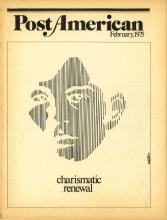As American power has grown, so, too, has the arrogance of power. Contained within this attitude of arrogance are irrationality, insecurity, and abusiveness of power. Perhaps Vietnam has exemplified the pinnacle of arrogance in American history. In response to Vietnam, J. William Fulbright wrote in 1966:
It is a curiosity of human nature that lack of self-assurance seems to breed an exaggerated sense of power and mission. When a nation is very powerful but lacking in self-confidence, it is likely to behave in a manner dangerous to itself and others. Feeling the need to prove what is obvious to everyone else, it begins to confuse great power with unlimited power and great responsibility with total responsibility: it can admit no error; it must win every argument, no matter how trivial… Gradually but unmistakably America is showing signs of that arrogance of power which has afflicted, weakened, and in some cases destroyed great nations in the past.
Physical extrication from Vietnam has not created a more humble self-image. Events at the beginning of 1975 demonstrate the perpetuation and growth of American arrogance of power.
One of the more touchy political and economic problems facing the Ford Administration is Middle East oil. In a carefully and deliberately worded statement in a January 13 Business Week interview, Secretary of State Henry Kissinger stated, for the first time, that U.S. military force would be used, if necessary, to keep Arabian oil fields open to the Western world. He limited the military option to “only the gravest situation,” an “actual strangulation of the industrialized world.”
Read the Full Article

